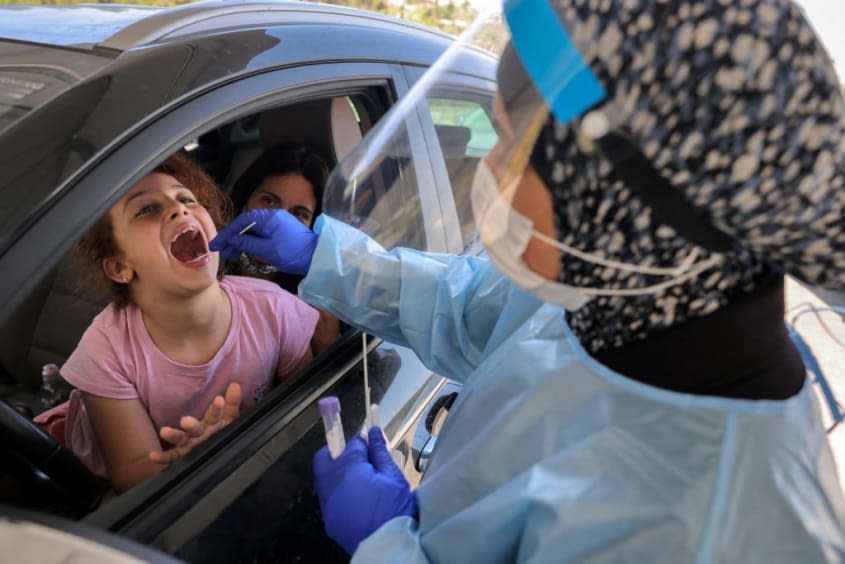We won't know how dangerous COVID-19's Delta variant is for children until after school starts

- Oops!Something went wrong.Please try again later.
Children and teens are preparing to return to school across the U.S. as COVID-19's Delta variant continues to push up hospitalizations across the U.S., including at children's hospitals. From July 31 to Aug. 6, an average of 216 children with COVID-19 were being hospitalized a day in the U.S., just shy of the pandemic's January peak, according to Centers for Disease Control and Prevention data. Tennessee's children's hospitals will be full by the end of this week, the state's health department predicted Monday.
The looming question parents are staring down the beginning of the school year is this: Are more children getting sick and going to the hospital because the much more contagious Delta variant is infecting more children, or does the Delta variant make children sicker than previous strains?
Pediatric specialists and epidemiologists don't have a good answer yet.
Most of the children who contract COVID-19 "are not very sick," Dr. Wassam Rahman, medical director of the pediatric emergency center at Johns Hopkins All Children's Hospital in St. Petersburg, Florida, tells The New York Times. "But as you might imagine, families are scared." And since hospitalizations are a lagging indicator, "I think time will tell, really," if the Delta strain is more severe in children, Rahman added. "We need at least a month, maybe two months before we get a sense of trends."
That's an especially long wait for kids under 12 returning to school still ineligible for the COVID-19 vaccines, and their parents.
"There's no firm evidence that the disease is more severe," Dr. Jim Versalovic, interim pediatrician in chief at Texas Children's Hospital in Houston, tells the Times. Nationally, about 1 percent of infected children end up in the hospital and 0.01 percent die, the American Academy of Pediatrics says. Still, more children with COVID-19 means more children hospitalized with the virus, Versalovic said. "It's a numbers game at this point."
Until more data comes in, parents and children age 2 and up wear masks in larger crowds, AAP's Sean O'Leary tells The Washington Post. "The most important thing that we can do is everyone who is eligible to be vaccinated, be vaccinated." Dr. Richard Malley, a pediatric infectious disease specialist at Boston Children's Hospital, agreed. "The safest way to never find out whether Delta is more aggressive to children than the original strain is to really enhance vaccination," he told the Times.
You may also like
Why Tom Brady's 'gentle' roast of Trump at Biden's White House was actually 'deeply vicious'
Olympics historian: Tokyo may have gone 'near the top of best organized' Games if not for pandemic
How sociology shows 'policy makers have been looking at vaccine refusal all wrong'

